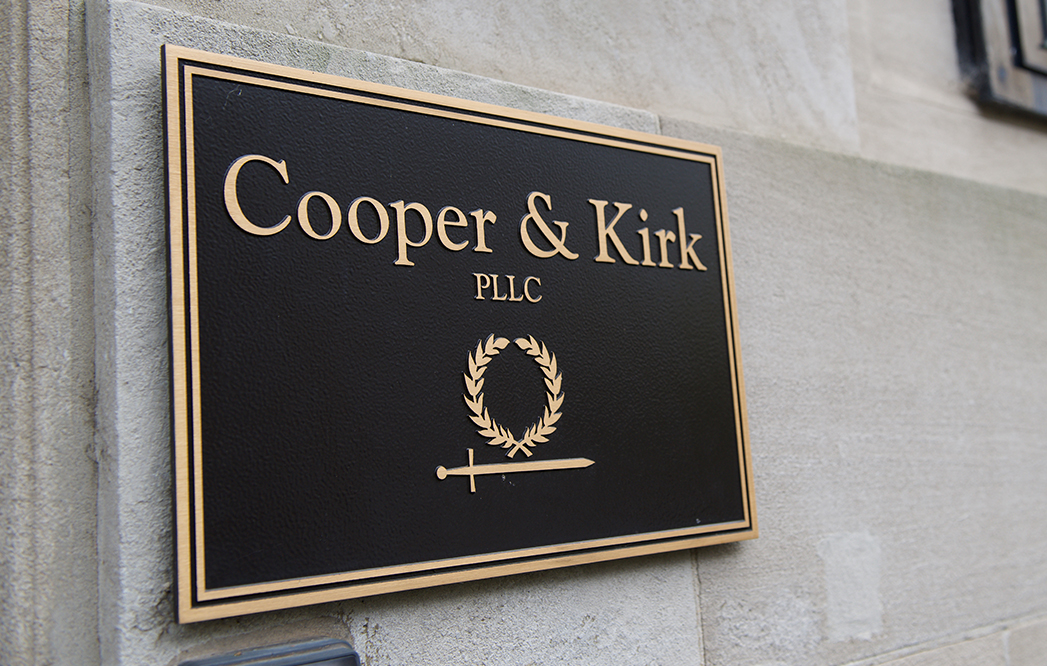Practice Areas

Administrative Law
Few firms have Cooper & Kirk’s depth and breadth of experience suing federal and state administrative agencies that have acted in excess of their statutory authority, run roughshod over the commands of the legislature, trampled upon individual rights, or acted in ways that are otherwise arbitrary, capricious, or irrational. As a boutique firm, we have a deep bench, with several former D.C. Circuit clerks and former executive branch lawyers among our ranks. From assessing the impact that proposed agency action will have on a business or industry, to drafting comment letters that will effectively present those issues before the agency and preserve the legal and constitutional grounds upon which a successful challenge could later be mounted in the courts, to litigating before the agency and obtaining review and redress in the federal courts, Cooper & Kirk has done it before, is probably doing it today, and looks forward to doing it again tomorrow. To date, we have litigated against, among other agencies, the USDA, the DOE, the DOJ, the Department of Transportation, the Department of the Treasury, the DEA, the Federal Reserve, the FEC, the EEOC, the FCC, the FDIC, the FHFA, the FTC, the OCC, the OTS, and the SEC.